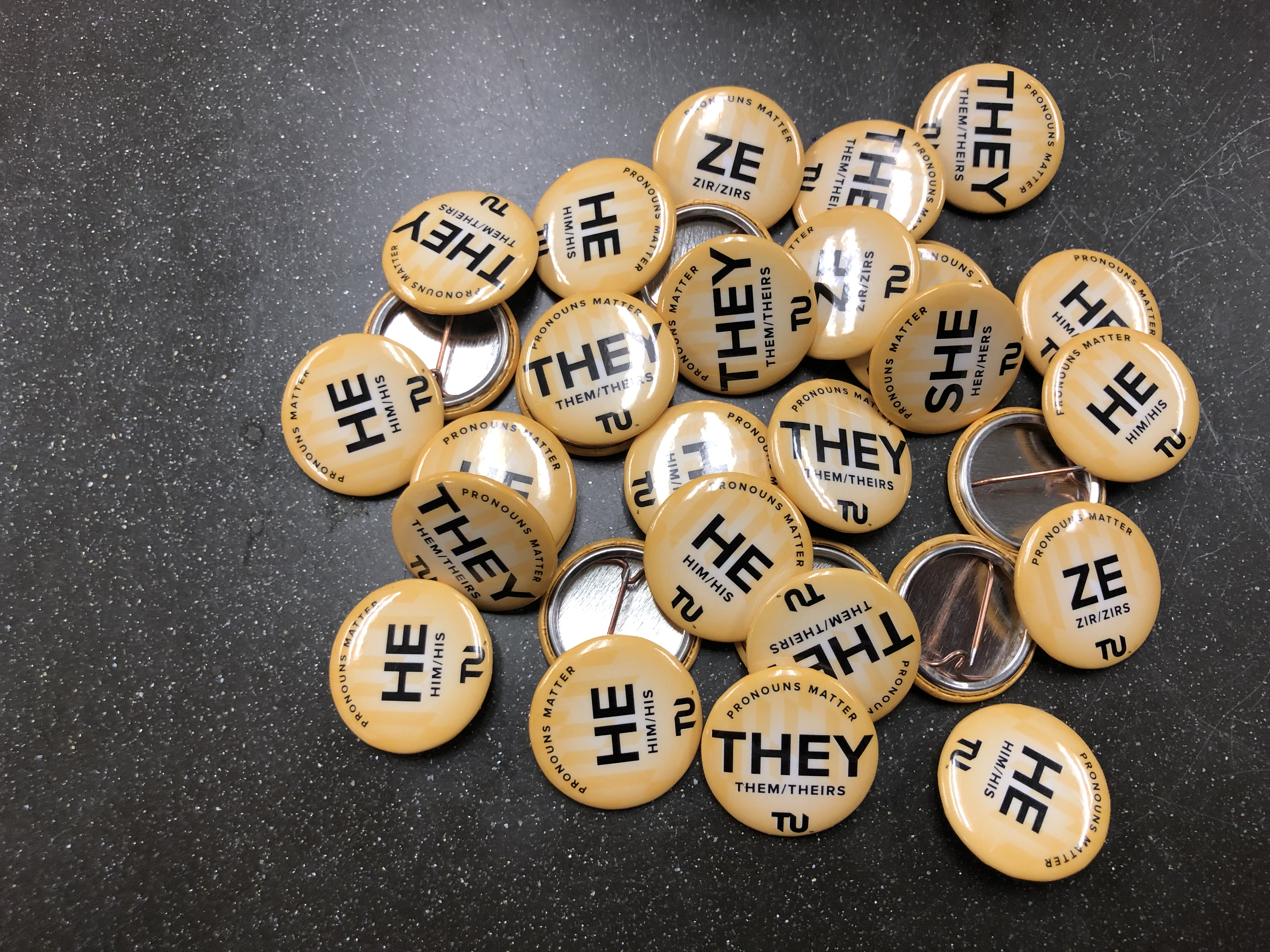
Cultural Competency workshop teaches Towson proper pronoun usage
By: Sophia Bates, Asst. News Editor
Photo by Bailey Hendricks
Towson’s Center for Student Diversity hosted a Cultural Competency 101 Workshop Series Oct. 16 where students and faculty participated in partner activities and discussions to enhance awareness and participation in pronoun usage on campus.
The event was held for International Pronoun Awareness Day and led by Angela Wu, the Associate Director of Cultural Competency.
“This presentation came about because I run the Cultural Competency Workshop series,” Wu said. “That is an ongoing workshop series that runs throughout the entire academic year. That is open to all members of the TU community and really outside members are invited to come.”
Participants at the workshop were involved in activities including personal introductions with pronouns, describing someone else in the room to a partner utilizing they/them pronouns and practicing the elimination of gendered language in everyday terms.
Audiology graduate student Madeline Campbell felt that the workshop bettered her understanding of pronoun usage, which could ultimately help her career too.
“Going into this I didn’t have a ton of knowledge of different pronouns people would identify themselves with so I was really looking forward to that,” Campbell said. “So in my profession, when dealing with patients or working with patients, it’s important to not make them feel uncomfortable and making a comfortable space for them to identify their pronouns is very important.”
Wu added that the workshop was meant to help everyone on campus feel more comfortable with pronoun usage.
“I just wanted to give folks a chance to practice using some of these pronouns because I think a lot of folks, one of the barriers they have, is the feeling of being afraid to make a mistake around pronouns or showing hesitancy around it,” Wu said. “I think it just helps everyone, including folks who haven’t used these pronouns but want to be inclusive.”
During the presentation, Wu added that pronoun usage is steering away from the term “preferred pronouns,” but there is an exception to this.
“Someone’s pronouns aren’t preferred, they are just their pronouns,” Wu said. “The exceptions are if someone has multiple pronouns that are acceptable but they prefer some over others. For example, if I use she/her or they/them pronouns but I prefer they/them…that would be a preferred pronoun.”
After the first activity, where participants introduced themselves along with their pronouns, Wu emphasized that as pronoun usage is normalized, people will make mistakes.
“It’s important to make the effort to correct yourself, but then move on,” Wu said. “There’s no need for a long, drawn out apology.”
At the end of the presentation, Wu offered more ways for people to acknowledge pronouns, including pronoun pins and pronoun name badges.
The workshop also offered pronoun pins, a gender pronoun fact sheet and an article entitled “Being Nonbinary Has Nothing To Do With Looking Nonbinary.” Assistant Director of LGBTQ+ Student Development and Diversity Erin Rook spoke on the article’s relation to the workshop.
“What it talks about is how when you are talking about nonbinary identities, that does not necessarily mean a person is going to use they/them pronouns, it’s really up to that person,” Rook said.
According to Wu, the workshop’s intentions was to enhance awareness around the importance of pronoun usage.
“We thought it was a good idea to use this as a workshop because we thought ‘Well, this is going to be something that people may or may not be familiar with but it’s something that’s important to know,’” Wu said.

